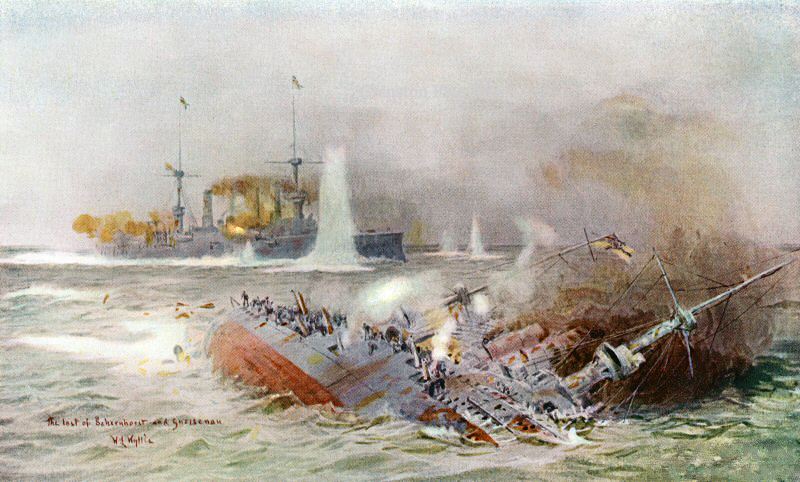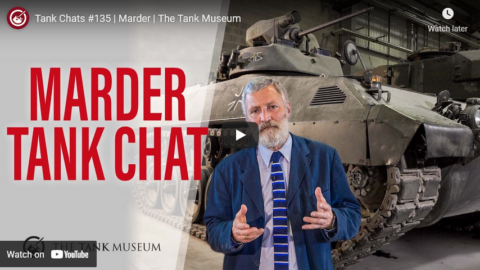World War Two
Published 8 Dec 2021It is one of the deadliest battles of the Eastern Front and entire conflict, yet it is often overlooked next to the fighting at Stalingrad. Today, we will take a look at the 1942 Summer Battles of Rzhev.
(more…)
December 9, 2021
Rzhev Meatgrinder: Day-by-Day Recap 02
Last Minute Holiday Gifts You Can Really Make
Rex Krueger
Published 8 Dec 2021Feeling the pressure of the holidays? Take a load off with these simple last minute projects!
ALL PLANS 50% OFF UNTIL CHRISTMAS!!!!!!!
https://www.rexkrueger.com/store———————————————————————
Projects featured in this video:Boot Jack:
FREE Plans: https://www.rexkrueger.com/store (scroll down; free plans at the bottom of the page).Make a Milking Stool (without a workbench):
Video: https://www.youtube.com/watch?v=vO6lA…The 3 Tool Bench:
Video: https://www.youtube.com/watch?v=3FKyz…Shop-Made Wooden Squares:
Video: https://www.youtube.com/watch?v=AepJX…
Plans: https://www.rexkrueger.com/store/plan…Japanese Cutting Gauge:
Video: https://www.youtube.com/watch?v=q6IoK…
Plans: https://www.rexkrueger.com/store/japa…Fish-Head Marking Gauge:
Video: https://www.youtube.com/watch?v=7_2Sq…
Plans: https://www.rexkrueger.com/store/plan…Roubo Winding Sticks:
Video: https://www.youtube.com/watch?v=7Am4j…
Plans: https://www.rexkrueger.com/store/plan…Rubber Band Gun (and tic-tac-toe board):
Video: https://www.youtube.com/watch?v=AMCdj…
FREE Plans: https://www.rexkrueger.com/store (scroll down; free plans at the bottom of the page).______________________________________________
Get My New Book, Everyday Woodworking: https://amzn.to/3oyjC0E
Check out my new site: https://woodworkforhumans.com
______________________________________________Sign up for Fabrication First, my FREE newsletter: http://eepurl.com/gRhEVT?
______________________________________________Wood Work for Humans Tool List (affiliate):
*Cutting*
Gyokucho Ryoba Saw: https://amzn.to/2Z5Wmda
Dewalt Panel Saw: https://amzn.to/2HJqGmO
Suizan Dozuki Handsaw: https://amzn.to/3abRyXB
(Winner of the affordable dovetail-saw shootout.)
Spear and Jackson Tenon Saw: https://amzn.to/2zykhs6
(Needs tune-up to work well.)
Crown Tenon Saw: https://amzn.to/3l89Dut
(Works out of the box)
Carving Knife: https://amzn.to/2DkbsnM
Narex True Imperial Chisels: https://amzn.to/2EX4xls
(My favorite affordable new chisels.)
Blue-Handled Marples Chisels: https://amzn.to/2tVJARY
(I use these to make the DIY specialty planes, but I also like them for general work.)*Sharpening*
Honing Guide: https://amzn.to/2TaJEZM
Norton Coarse/Fine Oil Stone: https://amzn.to/36seh2m
Natural Arkansas Fine Oil Stone: https://amzn.to/3irDQmq
Green buffing compound: https://amzn.to/2XuUBE2*Marking and Measuring*
Stockman Knife: https://amzn.to/2Pp4bWP
(For marking and the built-in awl).
Speed Square: https://amzn.to/3gSi6jK
Stanley Marking Knife: https://amzn.to/2Ewrxo3
(Excellent, inexpensive marking knife.)
Blue Kreg measuring jig: https://amzn.to/2QTnKYd
Round-head Protractor: https://amzn.to/37fJ6oz*Drilling*
Forstner Bits: https://amzn.to/3jpBgPl
Spade Bits: https://amzn.to/2U5kvML*Work-Holding*
Orange F Clamps: https://amzn.to/2u3tp4X
Screw Clamp: https://amzn.to/3gCa5i8Get my woodturning book: http://www.rexkrueger.com/book
Follow me on Instagram: @rexkrueger
The sequel to the British disaster at the Battle of Coronel, the German disaster at the Battle of the Falkland Islands
On December 8th, the people of the Falkland Islands observe “Battle Day” to commemorate the British naval victory off the islands in 1914. This is the bookend to the Battle of Coronel the previous month (described here and here), where a Royal Navy squadron was almost annihilated by Imperial Germany’s East Asia Squadron under Vice-Admiral Graf Maximilian von Spee. At the Battle of the Falkland Islands, an equally lop-sided victory eliminated von Spee’s ships with minimal damage to Rear Admiral Sir Frederick Doveton Sturdee’s squadron. In The Critic, A.S.H. Smyth outlines the events as shown in a British film released in 1927:

Battle of the Falkland Islands, 1914 by William Lionel Wyllie. SMS Scharnhorst rolls over and sinks while SMS Gneisenau continues to fight.
Originally published in 1918 by Cassel & Company. Retouched image via Wikimedia Commons
Rear Admiral Sir Frederick Doveton Sturdee (unimprovably British, isn’t it?), Chief of War Staff at the Admiralty, and at distinct risk of being scapegoated for the Coronel catastrophe, was summarily appointed Commander-in-Chief South Atlantic and Pacific(!) and despatched posthaste by [First Sea Lord John “Jackie”] Fisher (with whom he did not get on), on something of a do-or-die mission as the commander of new, eight-cruiser squadron.
The Admiral Superintendent of Devonport warns that Sturdee’s two battle cruisers, Invincible and Inflexible, cannot be ready before Friday the 13th November. First Lord of the Admiralty Winston Churchill balks at that ill-omened date, and orders that they sail on the 11th, ready or not. (Students of the 1982 conflict may see more than a couple of parallels here.) Cue: dockyard refitting montage.
Cut to the German colony at Valparaiso, where his countrymen fête von Spee’s glorious German victory in their first naval battle. “Damnation to the British Navy!” they want to toast. No, says, von Spee: “to a gallant enemy.” Handed a bouquet of flowers, he says he’ll keep them for his funeral “when my time comes.” For “when were the British ever content to leave an enemy to his triumph?”
Von Spee was well aware, it seems, that running the gauntlet up through the Atlantic was going to be a torrid prospect, even without a veangeful enemy on the look-out for him personally. But homeless (Tsingtau had fallen to the Japanese), in need of fuel, and down to half their ammunition, von Spee’s captains urged him now to head for Germany, and he agreed.
Von Spee’s ships were in need of dockyard maintenance and not steaming efficiently, but thanks to a captured British collier they were not in need of coal to be able to get home. Before setting off from where they’d been refuelling, Spee decided to strike another blow against the British and raid the Royal Navy’s supply base at Port Stanley in the Falkland Islands where only local militia were expected to be defending.
It was, among other things, sheer bad luck that von Spee came up to Stanley just a few hours after Sturdee had arrived with his group of cruisers — all newer, faster, and better-gunned than their fatigued German counterparts — and was busily refuelling. Likewise, that the sea was calm, there was little wind, and visibility was excellent. Too late, Gneisenau observes that there are British warships in the harbour! (The acting here is particularly terrible.)
It has been suggested that von Spee had not known that the British ships were “waiting” there (they hardly were); but it has also been alleged that he was misled by poor German intelligence, or even false British cryptography. [The Wikipedia article on the battle credits misinformation by British intelligence for leading von Spee into the trap.]
In Britain, meanwhile, the Admiralty is under the impression that Sturdee is the one who has been caught unawares in the Falkland Islands. Von Spee is a mere 12 miles away, and none of the British ships have their steam up. The FIVF [the Falklands Islands Volunteer Force] are called out, as the ships are ordered to go from zero to hero. One poor lad has to run up the Union Jack in local weather conditions (I’ve been that lad: he has my sympathies); another forgets his rifle, as emphasised by a heavily-asterisked title card.
As so often happens, Fate now played its hand, and Canopus, parked, with her fully-functioning 12-inch guns (so missed at Coronel) in Stanley Harbour, as the Islands’ main defensive battery, came into her own. As the Germans turn and run, Canopus opens fire, and soon enough the “grimly purposeful” cruiser group — “fittingly bearing names from the four corners of Britain … Kent, Cornwall, Glasgow and Carnarvon” — set off in pursuit.
The maths was simply not on the Germans’ side. Sturdee even sent his men below to eat. At midday, he called them back to Action Stations. Von Spee responded by ordering his light cruisers to scatter and make for neutral ports, while Scharnhorst and Gneisenau remained to “accept action to cover their escape”. Flashback to the presentation of those flowers.
Tank Chat #135 | Marder | The Tank Museum
The Tank Museum
Published 27 Aug 2021In this latest episode of Tank Chats, Curator David Willey details the German Marder. A post-war Infantry Fighting vehicle.
Support the work of The Tank Museum on Patreon: ► https://www.patreon.com/tankmuseum
Visit The Tank Museum SHOP & become a Friend: ► tankmuseumshop.orgTwitter: ► https://twitter.com/TankMuseum
Instagram: ► https://www.instagram.com/tankmuseum/
#tankmuseum #tanks
QotD: “The Knowledge” of London’s licensed cab drivers
It is not a simple question of regulation and laissez-faire. Regulation can result in an excellent service, better than what an unregulated service might have provided. London’s licensed taxi drivers are, in my experience, the best in the world, for example, and this is due to proper regulation. To obtain a license to operate, they have to master the Knowledge: learn the street plan of London — as higgledy-piggledy as that of any city in the world — not only in theory, as an abstract mental image, but in actual practice. This usually takes them three years, spent driving around the city, day in, day out. When finally they think that they have mastered it, they are examined — often by a retired policeman — and have to be able to say how they would get from A to B, or from C to D, not only by the shortest but also by the quickest route. Only then (and provided they have no police record) are they granted a license.
Obtaining the Knowledge is a formidable intellectual feat: indeed, neuroscientists have used it to demonstrate by brain scans differences between London taxi drivers and others in the possession of spatial knowledge and powers of orientation. And the result of the regulation requiring the Knowledge is that London taxi drivers, besides being small businessmen working largely on their own account and therefore committed to their profession, are generally intelligent, capable men. No doubt the advent of GPS will reduce the need for much of this effort, at least among unlicensed drivers, who were never required to have it anyway. The license was, and is, a guarantee of quality; and the point remains that regulation is not sometimes without benefit to the public.
What do the regulation of London taxi drivers and the success of the vaccination program have in common? I think that it is in the clarity, but also in the modesty, of their goals. The object of the regulation of taxi drivers, for example, is to produce a large cadre of drivers who provide an excellent public service — and the means to achieve this object are unmistakably and obviously connected to that goal. Any group comprising tens of thousands of human beings will contain some who fall below, even much below, the standard desired, but I know of no profession whose members more approximate its ideal. The drivers are justly proud of what they are. There have been no efforts to make saints, or even good people, of them; all that is required is that no ill be known of them and that they have the requisite knowledge. In 50 years of taking London taxis, I’ve never had a bad experience and have had innumerable good ones.
Theodore Dalrymple, “A Cure for Government Incompetence”, City Journal, 2021-08-30.





